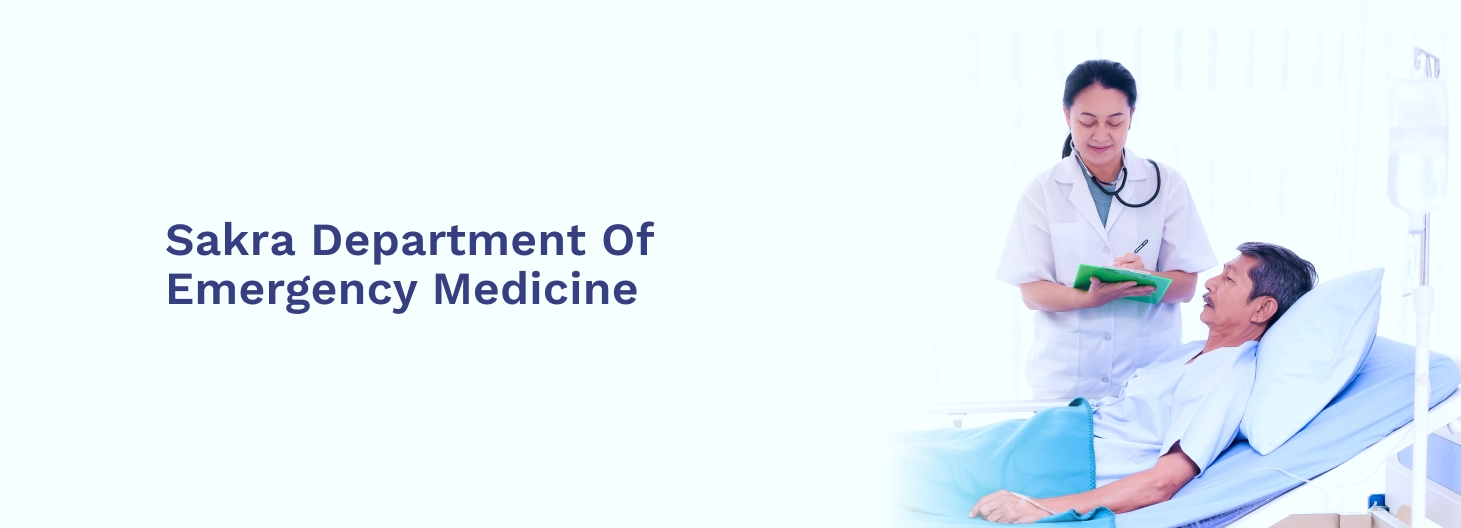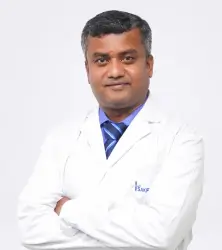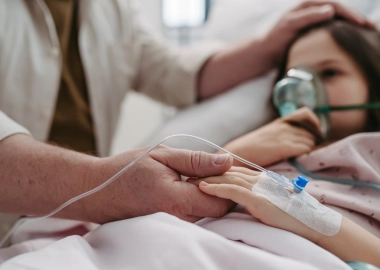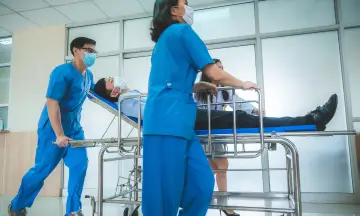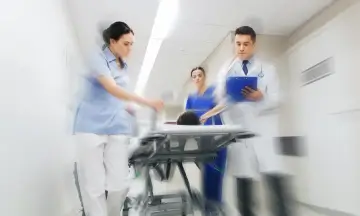Emergency Medicine Hospital in Bangalore
The department of Emergency Medicine at Sakra World Hospital offers the best emergency health services for critically ill patients. We have board-certified doctors, trained nurses, advanced midlevel providers, and other specially trained staff available 24/7 to treat anyone seeking emergency medical care.
At Sakra World Hospital, when you arrive at the Emergency Medicine Department, your first stop is Triage. This is the place where a doctor or a trained nurse categorises each patient's condition on the basis of priority.
There are three categories:
- Immediate life-threatening
- Urgent, but not immediately life-threatening
- Less urgent
It is necessary to do the categorization so that anyone with a life-threatening condition is not kept waiting because they arrive a few seconds or minutes later than someone with a more routine problem. Our dedicated team of specialists is committed to giving every patient the quality of care that best addresses the clinical problem.
Features of our Emergency Department
- Private examination rooms for patients and their families
- Drop-off area out front for patients and their families
- Access to the valet parking service
- Clean, comfortable, modern reception area
- Six trauma care rooms are equipped with the latest medical technologies
- Expanded radiology suite with X-Ray, MRI, and Ultrasound
- Integrated Acute Care Unit
Sakra World Hospital's ambulance service provides high-quality emergency medical care at the trauma scene and during transport to and between medical facilities. All the ambulances have a team of paramedics and emergency medical technicians that provide advanced life support care.
Sakra paramedics have advanced training and equipment to perform various medical treatments for a heart attack
The uniqueness of the department is that it handles severe illness at the most crucial time irrespective of different organ systems that could be involved due to the illness. The doctors in emergency medicine, besides being able to resuscitate acutely ill patients and provide trauma care, have expert-level knowledge and skills concerned with all branches of health care like General Medicine, Surgery, Critical Care, Orthopedics, Neurosciences, Radiology, Geriatrics, Pediatrics and Obstetrics, and Gynecology. Our clinicians, who are highly skilled in emergency medicine, have both medical and managerial dexterity.
Sakra World Hospital is the best emergency care hospital in Bangalore offering the best emergency health services to critically ill patients. The emergency rooms at the hospital are well equipped with state-of-the-art technologies and equipment to deal with all sorts of medical emergencies.
Sakra World Emergency Medicine Hospital in Bangalore has highly experienced doctors, surgeons, and staff nurses who are versatile in dealing with any medical emergencies.
How to Request Service
For medical emergencies, call 080 4962 4962.
To ask about costs associated with medical transport or questions about bills or coverage for services, please contact - 080 4962 4962.
Our ambulance service works closely with medical facilities throughout its service areas to ensure that advanced-level transport options are available.
Treatment and Procedures
- Advanced Emergency Airway Management in Adults: Advanced Emergency Airway Management is an important skill for clinicians caring for critically ill or injured patients and is fundamental to the practice of emergency medicine. In emergency medicine practice, rapid sequence intubation (RSI) is the most used and successful means of intubating the trachea.
- Reinflation Of A Collapsed Lung: A collapsed lung (pneumothorax) is a situation that occurs when air enters the space between the chest wall and the lung (pleural space). Symptoms of the collapsed lung include chest pain and shortness of breath.
- Tracheostomy: Tracheostomy (tray-key-OS-tuh-me) is a hole that doctors make through the front of the neck and into the windpipe known as the trachea. A tracheostomy tube is inserted into the hole to keep it open for breathing. The term for the surgical procedure to create this opening is tracheotomy.
Facilities and services
At Sakra World Hospitals, the ER is equipped to cater to almost all medical emergencies that can happen. Some of the treatments offered here are:
- Advanced emergency airway management in adults
- Basic airway management in adults
- Capnography
- Mechanical Ventilation in the ER
- Non-invasive ventilation in the ER
- Rapid sequence intubation in adults
- Tracheal Intubation and RSI
- Advanced cardiac life support (ACLS) in adults
- Basic life support (BLS) in adults
- Emergent surgical cricothyrotomy (cricothyroidotomy)
- Infiltration of local anesthetics
- Procedural sedation in adults
- Arterial blood gases
- Emergency pericardiocentesis
- Central venous access
- Peripheral venous access in adults
- Temporary cardiac pacing
- Closure of minor skin wounds with staples
- Closure of skin wounds with sutures
- Minor wound repair with tissue adhesives (cyanoacrylates)
- Incision and drainage for skin abscess
- Assessment and management of scalp lacerations
- Closure of minor skin wounds with staples
- Closure of skin wounds with sutures
- Minor wound preparation and irrigation
- Minor wound repair with tissue adhesives (cyanoacrylates)
- Reduction of temporomandibular joint (TMJ) dislocation
- Shoulder dislocation and reduction
- Splinting of musculoskeletal injuries
- Lumbar puncture
- Antepartum fetal heart rate assessment
- Diagnostic thoracentesis
- Placement and management of thoracostomy tubes


